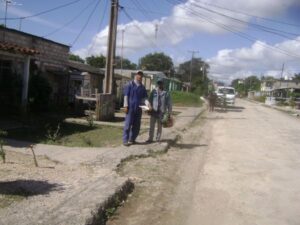The advent of the New Phase of capital that we are currently experiencing has consolidated a process of screenisation of our lives, which is only deepening as global digitalisation and technological dependence advance. Screens are no longer just entertainment or communication devices, but have become extensions of our bodies, mediating our working and emotional relationships and even our perception of reality. This phenomenon, accelerated by artificial intelligence, the metaverse and the platform economy, constantly redefines the boundaries between public and private, between productive time and leisure, while generating new forms of inequality and social control.
The Global Digital 2025 Report published last February shows that more than 5.24 billion people are active users of social networks, equivalent to 63.9% of the world’s population. In this new phase of hyperconnectivity, the digital space is becoming a strategic territory. Far from being just a channel for «keeping in touch with friends and family», as 50.8% of users still believe, the networks are consolidating as a space for ideological reproduction, surveillance, work and disputes over meaning.
Our everyday life – that vital space that mediates between individuals and the social totality – has been profoundly transformed by the uninterrupted and increasingly pervasive use of digital technologies. As a consequence, new mechanisms of alienation have emerged that conceal the exploitative character of these technologies, while legitimising power devices for the construction of common sense.
We can think of these platforms as a fundamental part of the ideological apparatus of today’s society. But also as a terrain in which class struggle takes on new forms. What appears to be harmless leisure, an «occupying of free time», is an extension of the working day and a new field of subjectivation.
Invisible work in networks: Who produces value?
One of the most revealing data in the report is that more than one in three users claim to use social networks for work-related activities. This figure takes on an even deeper meaning if we consider that the average user spends 6 hours and 38 minutes on the internet, an average that reaches 8 hours and 44 minutes in Argentina. This time spent in the virtual territory constitutes work time used by the owners of the platforms for the development of productive forces.
In this sense, data production is astronomical: almost 150 exabytes are generated monthly (one exabyte is equivalent to one thousand trillion gigabytes). The complexity of the exploitation mechanisms that make it possible to use this data to advance new technologies is truly remarkable. There are numerous examples that illustrate this trend, such as Pokémon Go, where data collected from user interactions was used to develop geospatial artificial intelligence models. Another prominent case is Snapchat, whose augmented reality filter technologies have been harnessed to refine facial recognition and surveillance systems.
Thus, the distinction between «free» and «work» time is blurring, consolidating virtual space as a new locus standi for production. This shift has brought with it a greater sophistication in the mechanisms of social control and the production of subjectivity. An important qualitative change in this context is our perception of time in virtual environments: we do not recognise it as work time, but experience it as leisure time.
In other words, while in previous stages of capitalism exploitation was centred on the appropriation of the surplus value generated during the working day, remunerated with a wage presented in appearance as «equivalent» to the work done, in the current phase of capitalism this process has intensified and extended, to the point that we do not identify our working time as such.
In this digitalisation and virtualisation of life, we not only work without remuneration for others to accumulate capital, but we do so under the guise of seeking the solution to «our needs» or the satisfaction of «our wants». From the use of algorithmic profiling for content segmentation, to the integration of game mechanics in applications and the use of persuasive technologies that target the release of neurotransmitters, the virtual territory has become a veritable trap to catch the attention and maintain the interaction of users, converging in a strategy that disguises unpaid work as entertainment and personal self-improvement.
In this way, platforms not only organise our work, but also shape the way we think, desire, feel and live. While listening to music on YouTube on my PC, I can be searching Google, checking WhatsApp on my phone, browsing Instagram for photos or a restaurant, while my smartwatch monitors my heart rate and alerts me to incoming calls. Even the coffee machine, lights, washing machine, fridge and even the pet feeder are connected to the internet. Everything happens simultaneously, instantaneously and almost imperceptibly, superimposed on our everyday experience. This transforms the way we live and produce: I am no longer alone in the factory performing a specific task; instead, I carry the factory in my hand.
Digital platforms then become these «new factories» whose advances generate conditions of wealth production that are appropriated by the owners of the platforms, giving rise to indiscriminate profit and the inherent possibility of being able to shape the behaviours of humanity in a more sophisticated way, like a competitive race for the «likes» on Meta or the quest for individual success that Tik Tok shows us.
This is why the battle is no longer just for land or traditional means of production: it is also for control of virtual territory, with control of time, attention and subjectivity, i.e. our collective knowledge.
Global digitisation is advancing, but not uniformly. Despite increasing access to the internet and mobile telephony (with more than 70% of the world’s population using mobile phones), there are still more than 2.63 billion people who are not connected. This divide is not technical but political. Digital exclusion reproduces and amplifies existing inequalities between countries in the global north and south, between urban centres and rural peripheries.
Moreover, the most powerful platforms are mostly concentrated in the hands of transnational corporations that respond to the logic of financial, technological and digital capital, the New Aristocracy of Finance and Technology (NAFT), with its particular geopolitical interests. BlackRock, Vanguard, StateStreet and Fidelity head the list of financial funds that concentrate the majority of shares in Apple, Microsoft, Google, Amazon, Alibaba, Tencent, Xiaomi and more. In this sense, digital responds to a global order where a few decide what is seen, what is censored and what goes viral.
The information that circulates on networks is filtered by opaque algorithms that prioritise their private interests over those of humanity, affecting the way people inform themselves, organise themselves and understand the world. In this new phase, social media is as much a battleground as the streets of the world.
The response is urgent
Against this backdrop, the response is urgent. Today, social networks are tools of «apparent leisure» that hide the production and reproduction of capitalist common sense, the real objective of the NAFT wrapped in a dust that is difficult to clear. The wisdom of the majorities is today hijacked by capital. But it can and must also be liberated.
Taking over the networks does not mean romanticising technology, but putting it at the service of popular interests. It implies creating and disseminating content that questions and disputes power and that organises from the grassroots. It also means building digital sovereignty to put it at the service of the interests of the majority.
The physical streets have long ceased to be the only territory in which societies move. Reality indicates that virtuality is today a disputed territory, a space of struggle to construct and impose shared meanings.
As Marx said, the history of humanity is the history of class struggle. In this new phase of the capitalist system, this struggle is also taking place on Instagram, TikTok, WhatsApp and all the networks and platforms where humanity is present. And there, as in every struggle, it is not enough to observe. We need to transform the system with direct digital and street actions that involve taking control of the physical and virtual territory.




